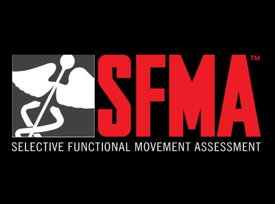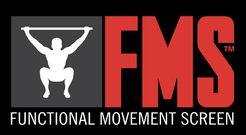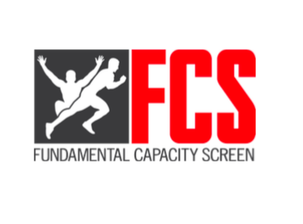Movement Evaluation Services.
First move well, then move often.
When analyzing high quality rehabilitation professionals we find that they have 3 main traits in common:
- Excellent Communication
- Great Diagnostic Skills
- Treatment and Exercise Knowledge
This is where the Selective Functional Movement Assessment (SFMA) fits in. The Selective Functional Movement Assessment (SFMA) is your total body movement diagnostic system. The assessment will provide an efficient method for systematically finding the cause of the patient’s pain, not just the source. It is a repeatable diagnostic metric.
The SFMA begins by screening 7 top tier full body movement patterns. These movements are rated and ranked as functional vs. dysfunctional, and painful vs. non-painful patterns. The top tier movement results will guide the practitioner to first systematically look at
the parts of the dysfunctional non-painful patterns, since evidence tells us pain alters movement and causes the body to compensate. In this manner we can determine the
root cause of the movement dysfunction, without interference and the effects of pain on movement. Through further examination the SFMA gives the clinician an opportunity to differentiate between mobility vs. stability/motor control dysfunctions in order to provide the most appropriate intervention for the problem at hand. By building an intervention plan related to an individual’s overall mechanical function rather than medical diagnosis, the clinician can not only impact the patient’s symptoms, but also have long lasting positive outcomes for that individual’s level of function.
| intro_to_sfma.pdf |
The Functional Movement Screen (FMS) is a screening tool used to evaluate seven fundamental movement patterns in individuals with no current pain complaint or musculoskeletal injury. The FMS is not intended to diagnose orthopedic problems but rather to demonstrate opportunities for improved movement in individuals.
The screen is designed to place an individual in extreme positions where movement
deficits become noticeable if appropriate stability and mobility are not used. Even though individuals are performing an activity or sport at a high level, it has been observed that many of these same individuals are limited in fundamental movement. This leads to the use of compensatory movements in order to achieve or maintain the level of performance needed for the activity. The inefficient use of compensation during movement will lead to poor biomechanics that limit gains in performance and reduces the body’s ability to remain adaptable and durable against the risks of being involved in the activity or sport.
| intro_to_fms.pdf |
Is performance in your DNA?
Enhancing performance is a common goal for many, but what if there are fundamental fitness issues hindering those you train from reaching their true potential?
The Fundamental Capacity Screen (FCS) gives you those answers, and is an innovative approach to fitness testing to get your clients and athletes on the most efficient path to optimal performance. FCS was designed to test four (4) key components of athletic capacity and identify issues affecting an individual's ability to:
Enhancing performance is a common goal for many, but what if there are fundamental fitness issues hindering those you train from reaching their true potential?
The Fundamental Capacity Screen (FCS) gives you those answers, and is an innovative approach to fitness testing to get your clients and athletes on the most efficient path to optimal performance. FCS was designed to test four (4) key components of athletic capacity and identify issues affecting an individual's ability to:
- Produce power
- Store and reuse energy
- Maintain posture under load
- Control balance


